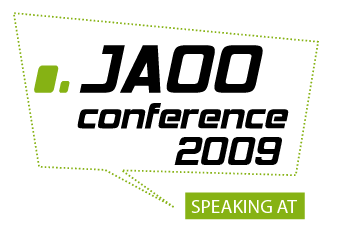I was informed about ORMBattle.NET existence a few minutes ago. This is a site that:
ORMBattle.NET is devoted to direct ORM comparison. We compare quality of essential features of well-known ORM products for .NET framework, so this site might help you to:
- Compare the performance of your own solution (based on a particular ORM listed here) with peak its performance that can be reached on this ORM, and thus, likely, to improve it.
- Choose the ORM for your next project taking its performance and LINQ implementation quality into account.
NHibernate is faring rather poorly in the tests there, and I thought that I might respond to that.
First, I want to point out that the company behind the website is Xtensive, which makes another ORM Product. This is not to discredit them, they make it very clear who is behind the site and that they have an ORM product in the benchmark. And they were the one who contacted me about it.
The problem with benchmarks, especially when you are trying to compare a wide variety of products that have different feature sets and different capabilities, is that they are essentially useless. The problem is that in order to be able to measure anything useful, you have to resort to the common denominators, and they are pretty bad.
In the case of the benchmark scenarios used for NHibernate, it shows the problem rather clearly.

I don’t even need to think about anything to know that this is going to perform badly. There are several reasons for that. First, NHibernate was never intended to be a batch processing tool. It is an OLTP tool. The benchmark (all the tests in the benchmark) are aimed specifically at measuring batch processing. That is problem number one.
Second, NHibernate actually contains a lot of features that are aimed to give us great performance in many scenarios, including batch processing. For example, in this case, using a stateless session alone would generate a significant performance boost, not to mention that there is no use of batching whatsoever.


This two tests are also showing examples of “this isn’t how we do things”. For one thing, calling the database in a loop is a bug. For another, I would generate the same result, which greatly improved performance using Executable DML:
session.CreateQuery("update Simplest s set s.Value = s.Value + 1").ExecuteUpdate();
session.CreateQuery("delete Simplest").ExecuteUpdate();
And so on, and so forth.
To summarize, because I have talked about this before. Trying to compare different products without taking into account their differences is a flawed approach. Moreover, this benchmark is intentionally trying to measure something that NHibernate was never meant to perform. We don’t need to try to optimize those things, because they are meaningless, we have much better ways to resolve things.
And you know what? The problem is that even if you did put those in, they would still be invalid. Benchmarks tend to ignore such things as the impact of the builtin caching features, or the optimization options that are available in the mapping.
In short, if you want me to “admit” that NHibernate isn’t a batch processing tool, I will do so gladly, it was never meant to be. And benchmarks that try to show how it is in batch processing are going to show it being slow. For real world application development, however, NHibernate is a great fit, and show excellent performance.
Oh, and because management told me that I must, if you find perf problems with NHibernate, that is why we have the NHibernate Profiler for you :-)















